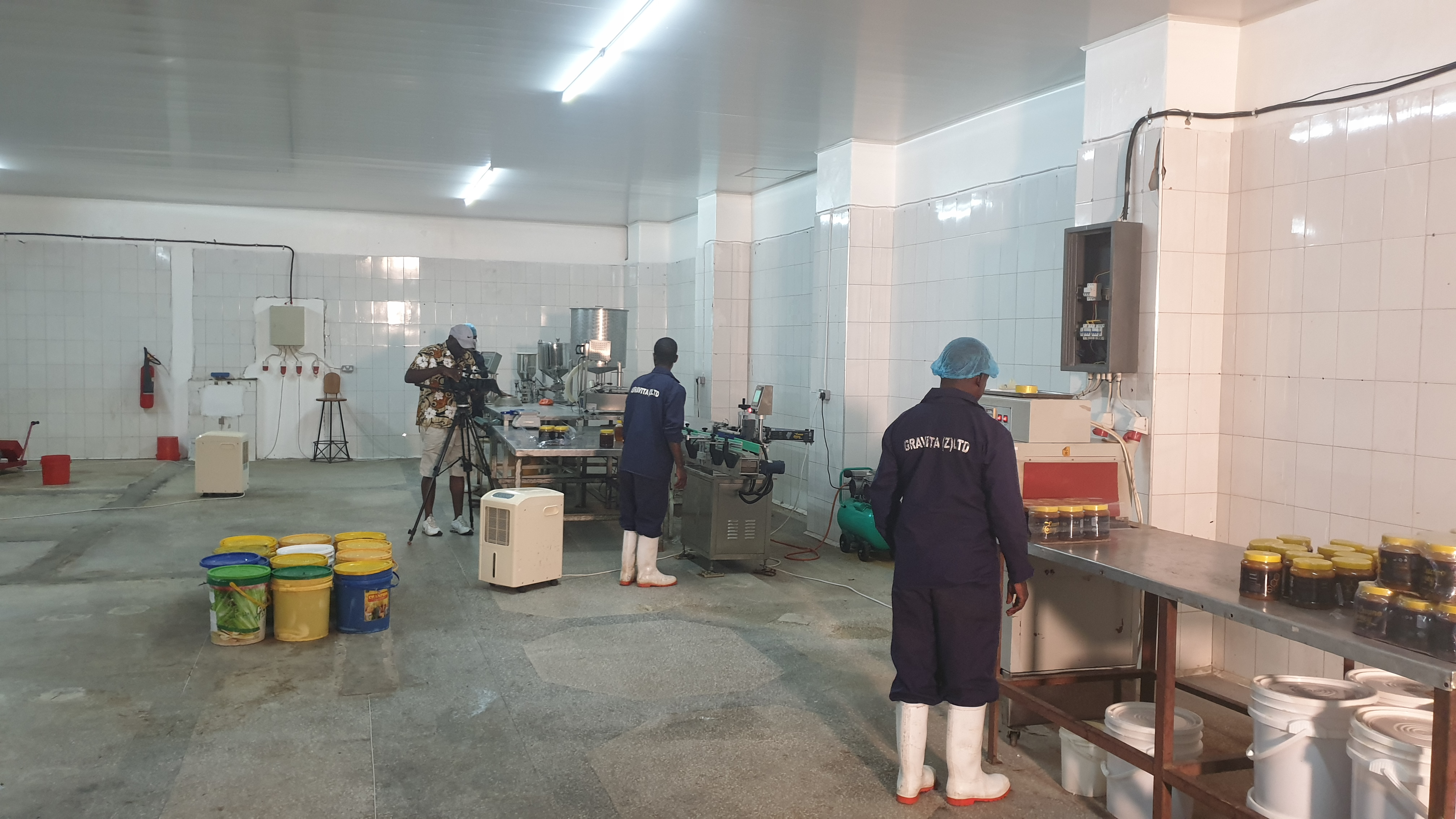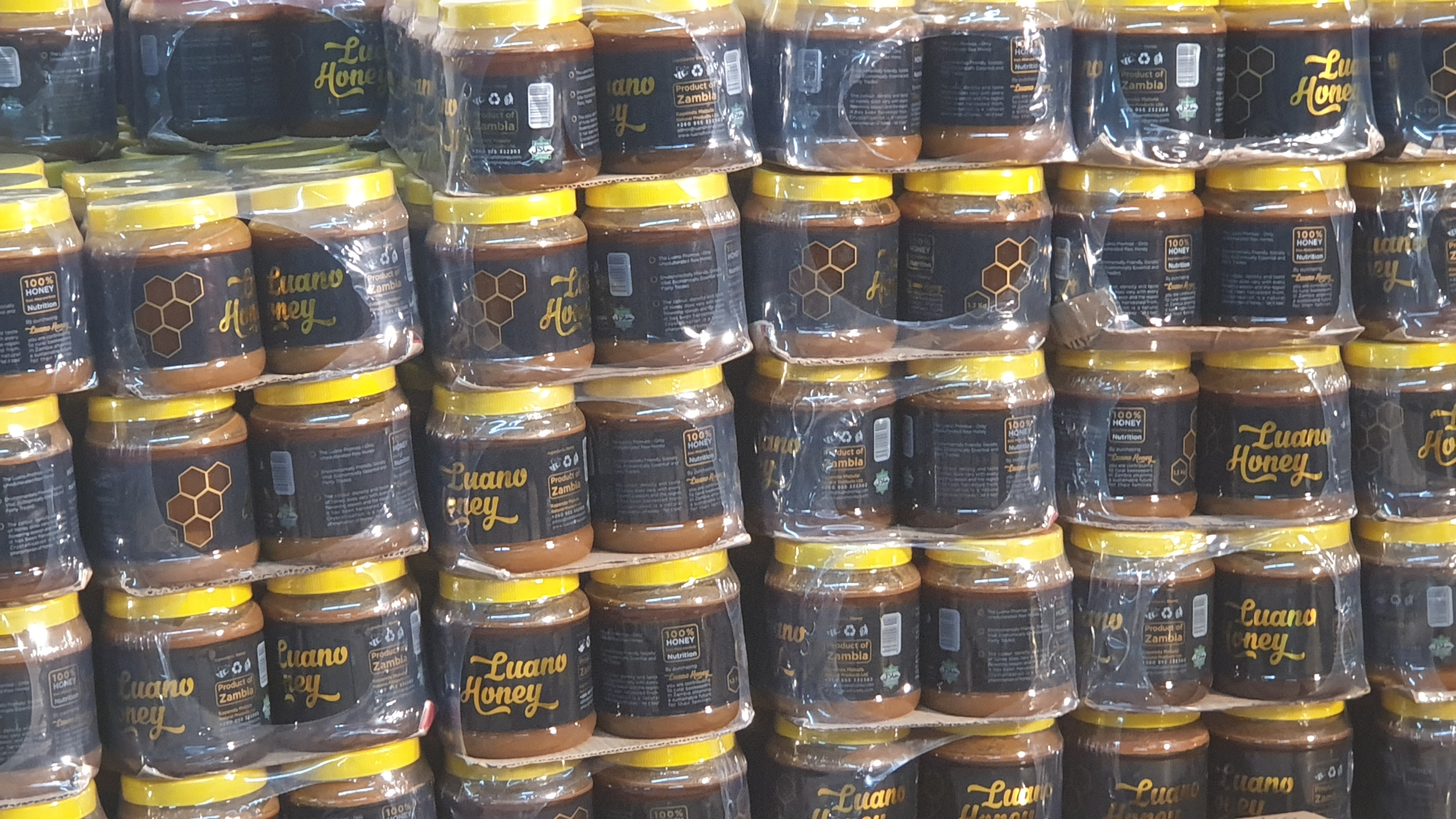02:21

He calls it a "sweet and sticky" business, one he's thoroughly enjoying and has already made a huge impact on his compatriots, with the potential to do even more.
Miit Pandoliker was born and brought up in Zambia but he attended college in the United States, where he realized the value of honey. On his return home, he sought an opportunity in the sector, in which he believed his country has a distinct advantage.
"Every hive has a different flavor, every pound of Zambian honey tastes different depending on what the bees are eating in that forest, what surrounds its flowers when they are grown there," explained Pandoliker.
"It's very unique. No honey in the world has that variation. Every packet, every pouch, ever jar tastes different."

Pandoliker's Luano Honey plant. /CGTN Photo
Pandoliker's Luano Honey plant. /CGTN Photo
CGTN accompanied Pandoliker on a tour of his Luano Honey plant, located in Lusaka's industrial area. He bought the company in May this year and in just a few months he has revived the business and turned it into one of the top suppliers in Zambia.
Already exporting into several neighboring countries, the company now has its sight set on markets in the United Kingdom, Europe, South-East Asia, and the Gulf region.
It's hoping to contribute to the much sought-after diversification of the Zambian economy, for many years thought to be over-reliant on copper.
"We are moving from mining to agriculture and the government is really pushing that and we want to be part of that push as well," said Pandoliker.

Luano Honey's products. /CGTN Photo
Luano Honey's products. /CGTN Photo
Zambia is the second- largest copper miner, just behind the Democratic Republic of the Congo, but has been actively developing non-traditional exports, of which honey is emerging as a viable option.
"Honey exports can be a key component in the growth of the economy and fight against poverty through job and wealth creation," Jessica Chombo, acting director for export promotion at the Zambia Development Agency (ZDA) told CGTN.
The agency is planning to increase production from the current 2,000 tonnes per year to 10,000 per year by investing in modern technology, providing financial assistance to exporters through revolving funds and opening up new markets abroad.
The ambitious targets have been encouraged by the growth in export revenue which almost doubled, from 1.6 million U.S. dollars in 2015 to 3.1 million U.S. dollars in 2018.

Luano Honey's product. /CGTN Photo
Luano Honey's product. /CGTN Photo
But the impact is beyond just numbers.
More than 30,000 rural bee keepers harvest raw honey mostly in the underdeveloped forest regions of the Northwestern Province. Many of them are women and young girls who are experiencing a transformative change in their livelihoods.
"Before we were buying their honey, the rural people used it to brew home-made beer because they didn't have access to a market," said Pandoliker. "We are bridging that gap and putting money in their pockets so they can put food in their children's bellies."
"It can really help people out there where there is nothing. From where we are getting the honey there is literally nothing, just a dense forest and a couple of mud huts. So in that way we feel proud," he concluded.